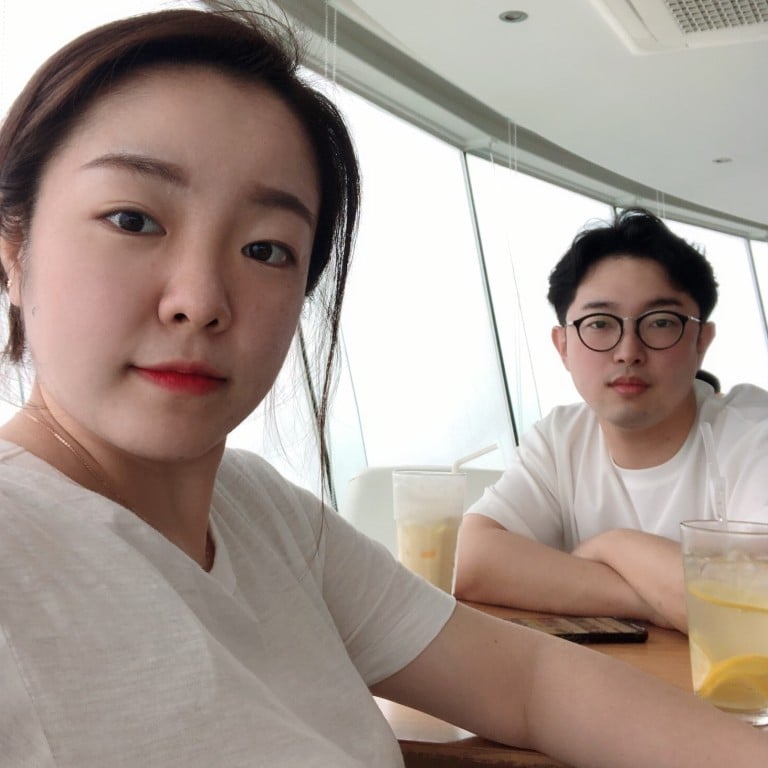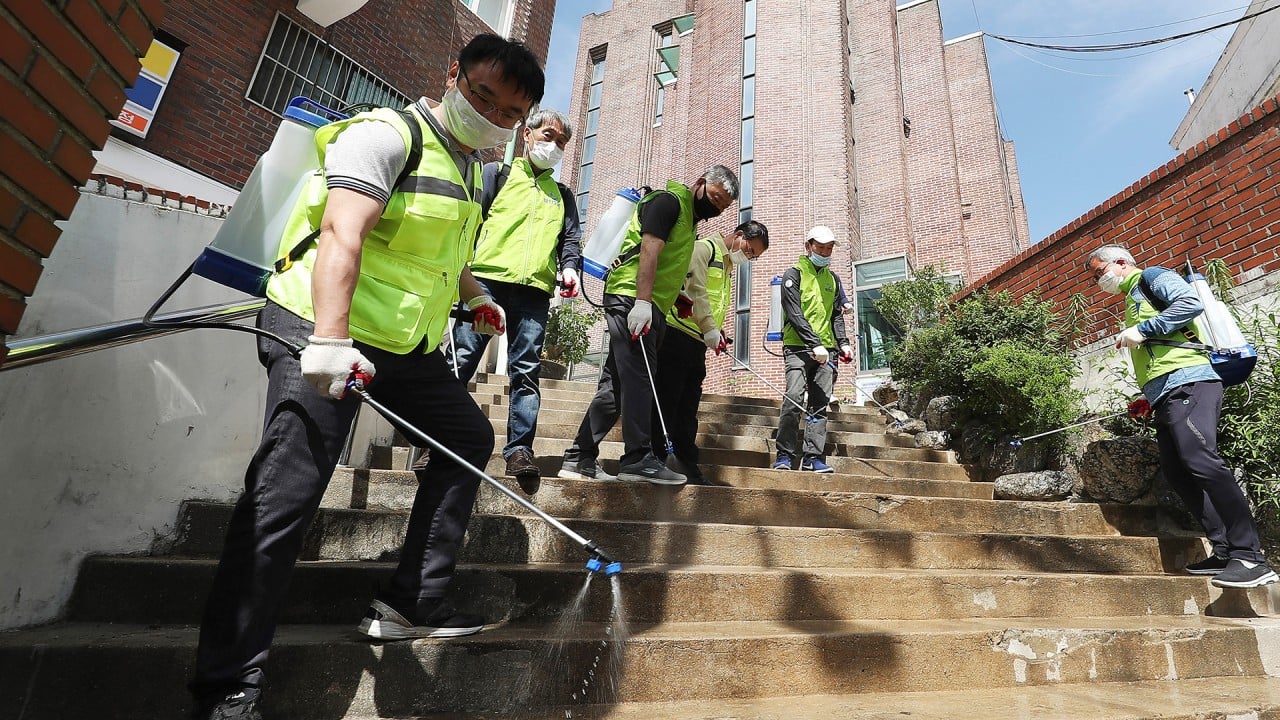
How two South Korean Covid-19 survivors repaid medical staff – in blood
- Grateful at the care they received in hospital, the couple decided to donate their blood – and the antibodies it contained – once they were discharged
- Plasma treatments for the disease can be developed from cured patients’ blood, though experts caution a cure is still some way off
They happily signed up in June when the Onchun Presbyterian Church in Busan, a southern city which reported its first coronavirus case in February, ran a donation drive for blood samples from recovered patients to help develop plasma treatment.
They were taking really good care of us, as if we were their own family members, so we wondered what we could do as a token of appreciation
When Chang-yeon, a paramedic, heard the news that the first coronavirus patient in Busan was an Onchun Church follower, he was worried he might have caught the virus there as he had a runny nose and a fever.
He rushed to a test site where he tested positive, with Kim testing positive soon after.
The couple were subsequently admitted to the Busan Medical Centre in February, where they were treated in different rooms.
“We were deeply thankful to the doctors and nurses at the hospital,” Kim told the Post. “They were taking really good care of us, as if we were their own family members, so we wondered what we could do as a token of appreciation.”
While in hospital, Kim was shocked by the fact that there was no cure for the disease.
“The medical staff were taking great pains to take care of patients there and we were all moved by their self-sacrifice. I think if a therapy [or vaccine] becomes available, it would also ease their burdens,” Kim said.
People who have recovered from Covid-19 develop antibodies, natural defences to the disease, which are found in part of the blood called plasma.
What is antibody treatment and how can it help in coronavirus fight?
The Korea Centres for Disease Control and Prevention (KCDCP) said more than 1,000 recovered patients had agreed to donate plasma to help develop remedies. It had collected blood samples from 660 people as of Tuesday.
Blood from recovered patients can be used to make convalescent plasma, which contains antibodies, and hyperimmune immunoglobulin, which is more concentrated, according to a research paper written by a dozen experts recently published on Cochrane, a global network formed to organise medical research findings.
Convalescent plasma and hyperimmune immunoglobulin have been used to treat other respiratory viruses, but require the collection of a great deal of blood from which they can be extracted, the KCDCP said.
It added that South Korea planned to start clinical trials for the plasma-based medicines as early as in September.
South Korea sees uptick in coronavirus cases as second wave arrives early
However, experts have cautioned that hype about plasma-based treatments could spark false hopes that a cure for Covid-19 is just around the corner.
“It’s a well-established fact that plasma-based therapies for respiratory diseases are effective in preventing viral infections. But there is a caveat here – they are not so efficient in treating infected patients,” said emeritus Professor Lee Hoanjong at the Seoul National University Children’s Hospital.
“I just hope in the case of Covid-19, plasma treatment may turn out to be effective not only in preventing infections but functional as a cure as well.”

01:26
South Korea battling a ‘second wave’ of coronavirus infections, Seoul health officials say
The research paper recently published on Cochrane said it was not clear whether plasma treatment was effective for Covid-19 patients. “These findings could be related to the natural progression of the disease, other treatments that the participants received, or to convalescent plasma,” it added.
The blood donation by Onchun Church marked the first of its kind by a group amid the global pandemic. The church’s followers also donated 50 million won (US$41,900) to the Red Cross in South Korea to help research into plasma treatments.
“Since the cluster outbreak, we’ve been strictly sticking to distancing and hygiene rules,” a church official said.
Australian researchers invent 20-minute coronavirus blood test
While Kim’s symptoms were so mild she hardly needed any other medication than normal painkillers, she said Chang-yeon had a high fever and very sore muscles and joints. He was unable to sleep without painkillers, and was administered with antiretroviral drugs ordinarily used for treating Aids.
After three weeks’ treatment, both were declared cured of the disease and discharged from hospital – and three months later, in June, they topped off a 10-year relationship by getting married.
Some 200 guests who came to celebrate with them at Onchun Church were given latex gloves and face masks and were seated sparsely. Only the couple, their parents and the priest were exempt from wearing masks.
The usual wedding meal was scrapped and each guest was given an envelope of 10,000 won (US$8) and a pack of dry noodles as a gift.
“We are both healthy young people and we don’t feel any lasting impact on our bodies from the illness. But it has certainly left us psychological damage,” Kim said. “When I enter an enclosed area, like an elevator, I feel my heart running and I start having rapid and shallow breaths.”
The couple had long planned to go to Phuket, Thailand, for their honeymoon, but instead settled on the South Korean resort island of Jeju due to travel restrictions.
“When the epidemic goes away, we will someday go to Phuket for our missed honeymoon there,” Kim said, wistfully.



